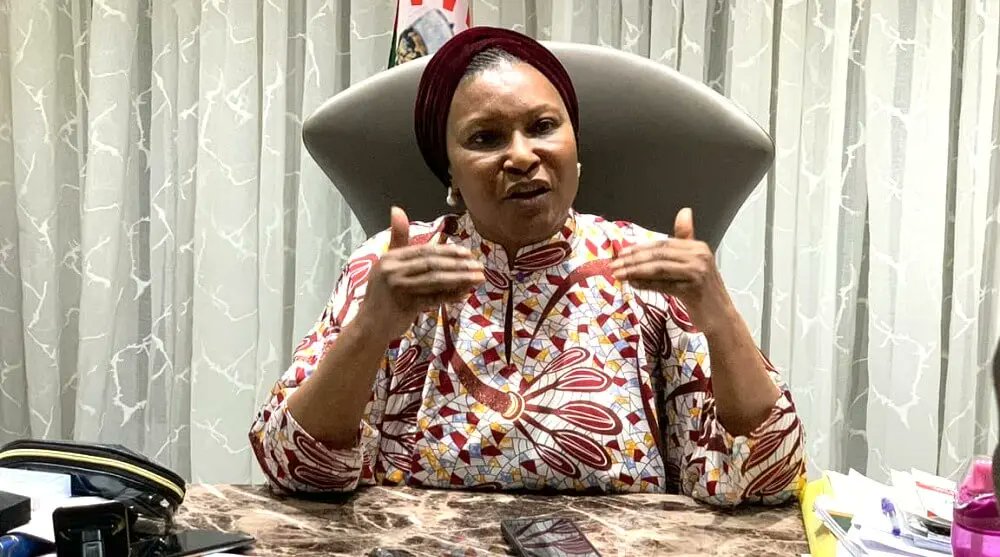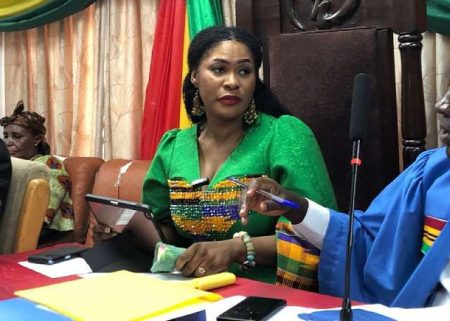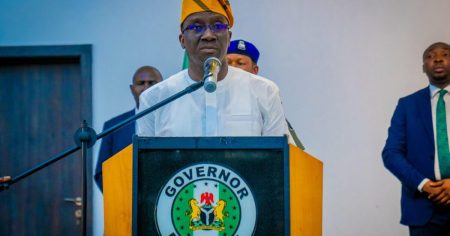Senator Ireti Kingibe’s assessment of the Labour Party’s prospects in the 2027 general elections paints a bleak picture, marked by internal divisions and a lack of cohesion. Her candid remarks, delivered during an interview on Channels TV’s Political Paradigm, reveal a party struggling with its own internal dynamics, hindering its ability to present a united front and effectively compete on the national stage. Kingibe’s words, “The Labour Party is in some sort of a quagmire,” encapsulate the party’s current predicament, further emphasized by her observation that it is “very fractured and broken.” This internal strife, according to Kingibe, renders the LP unfit to achieve electoral success in its current state.
The Senator’s comments shed light on the deep-seated divisions within the Labour Party, highlighting the existence of two distinct factions, one of which she identifies herself with. This fragmentation weakens the party’s ability to mobilize support, formulate coherent strategies, and project a unified message to the electorate. The upcoming local government elections serve as a crucial testing ground, and Kingibe’s decision to align with the African Democratic Congress (ADC) for these polls underscores the severity of the LP’s internal challenges. Her statement, “We needed a platform. The Labour Party would have been that platform, but it was broken,” clearly illustrates the lack of confidence in the party’s current ability to serve as an effective vehicle for electoral victory.
Kingibe’s decision to seek an alternative platform in the ADC for the upcoming local elections speaks volumes about the extent of the dysfunction within the Labour Party. Her belief that the Federal Capital Territory (FCT) can win “not on APC” suggests a strategic calculation to leverage the ADC’s perceived credibility and potential to challenge the ruling party. This move also highlights the limitations imposed by the fractured state of the LP, forcing its members to explore other avenues for electoral participation and potentially jeopardizing the party’s overall performance in the local polls. The Senator’s open acknowledgment of a possible departure from the LP further underscores the depth of the party’s internal crisis.
The internal divisions within the Labour Party, as described by Senator Kingibe, raise significant concerns about its future trajectory and ability to effectively compete in future elections. The party’s fractured state not only weakens its ability to present a united front but also undermines its credibility and capacity to attract and retain support from the electorate. The lack of a clear and unified message, coupled with internal power struggles and factionalism, can alienate potential voters and create an atmosphere of uncertainty and instability, hindering the party’s growth and development.
The implications of a fragmented Labour Party extend beyond internal dynamics and can have broader repercussions for the political landscape. A weakened LP can contribute to a less competitive electoral environment, potentially limiting the choices available to voters and reducing the pressure on other parties to address critical issues and concerns. The absence of a strong and unified opposition can also hinder the development of robust policy debates and limit the ability of alternative voices to challenge the status quo.
Moving forward, the Labour Party faces a crucial juncture. Addressing the internal divisions and forging a path towards unity and cohesion will be essential for the party’s survival and future success. Building trust among its members, fostering open dialogue, and developing a shared vision are crucial steps in this process. Failure to effectively address these challenges will likely further marginalize the party and diminish its ability to play a meaningful role in the political arena. The Senator’s pronouncements serve as a wake-up call, highlighting the urgent need for internal reform and a renewed focus on building a strong and unified political force.














